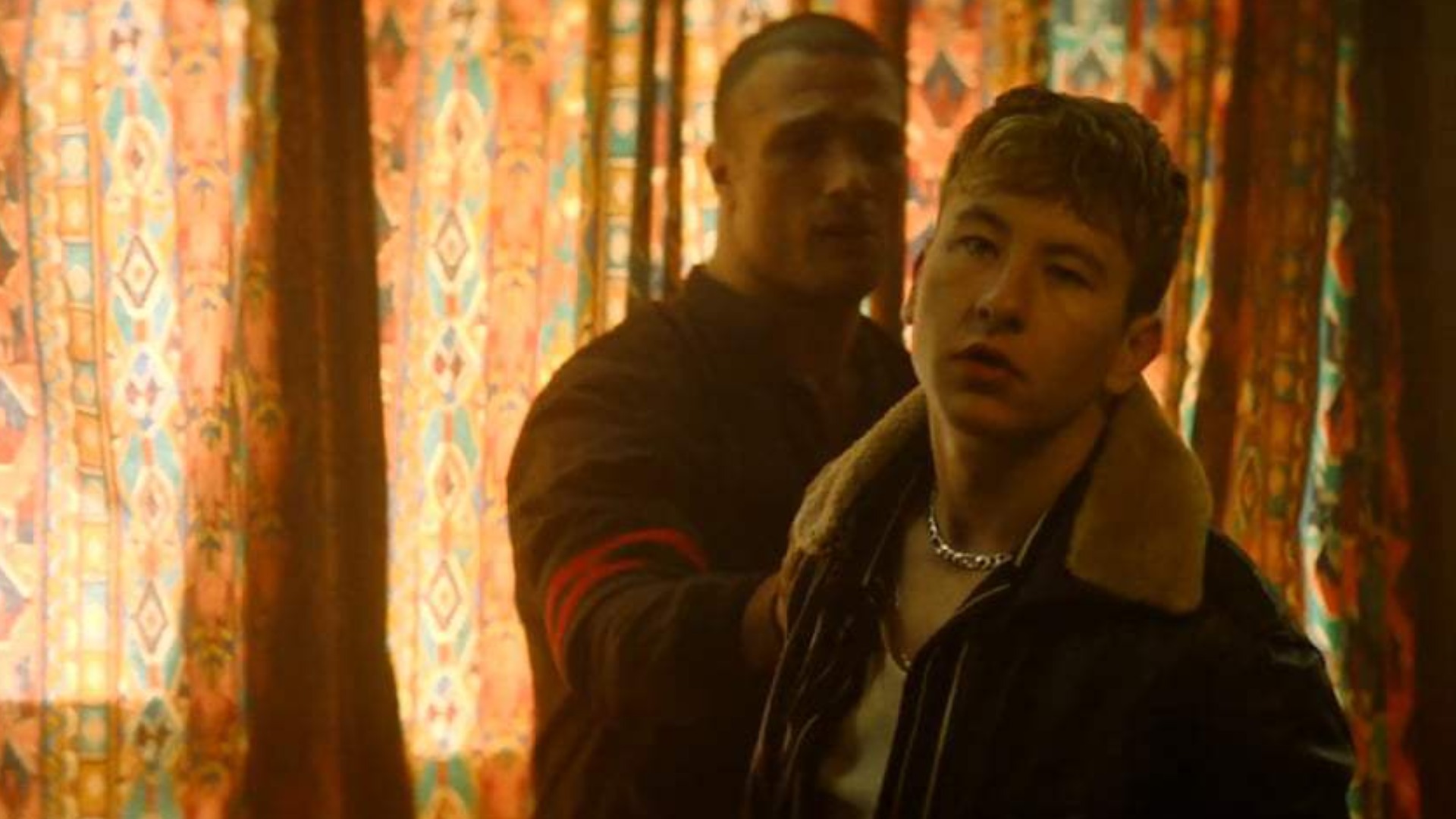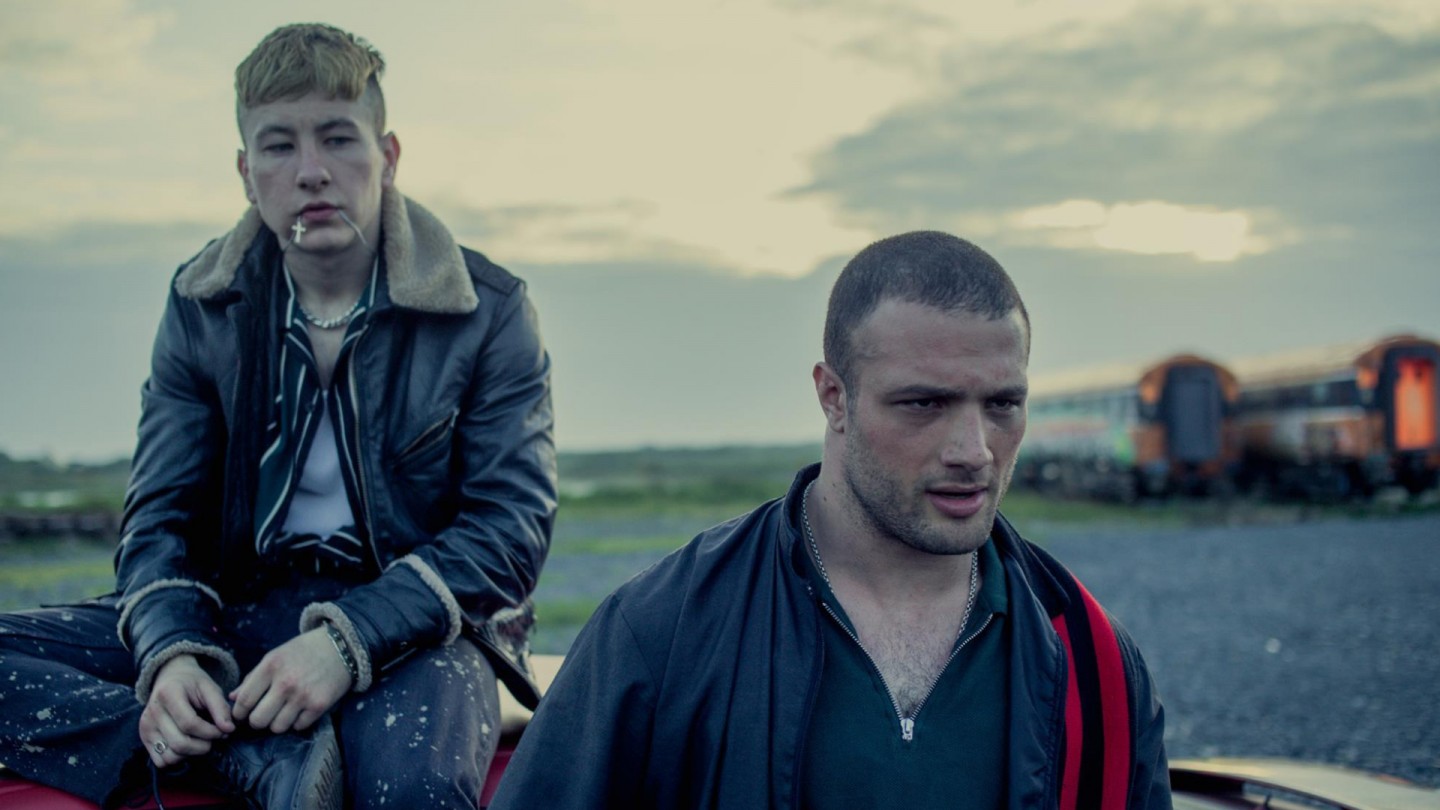GamesRadar+ Verdict
Tightly scripted, forcefully directed, grittily performed, this is the Irish crime film you need in your life.
Why you can trust GamesRadar+
When you think of Irish crime yarns, what usually comes to mind are films that lean towards the comic: Paddy Breathnach’s I Went Down, for example, or even Martin McDonagh’s In Bruges. So there’s something refreshing about Nick Rowland’s feature debut, Calm With Horses. A hard-as-nails tale of a multi-generational family who laud it over an Irish rural town, this brooding drama delivers exactly what you might hope.
Its ace in the pack is Cosmo Jarvis, the increasingly prominent British actor who takes the lead with the magnetic charisma of a young Gary Oldman. Working from a script adapted by Joe Murtagh from Colin Barrett’s short story of the same name (included in the writer’s 2014 collection Young Skins), Jarvis plays Douglas ‘Arm’ Armstrong, a former boxer now working as a hired hand for the Devers family.
In charge of this ruthless clan of drug-running mobsters is the foul Paudi (Ned Dennehy), though Arm spends more of his time with Paudi’s nephew Dympna (Barry Keoghan), a weaselly individual desperate to gain favour with his powerful uncle. Shaven-headed and stacked with muscle, his knuckles permanently bruised from fighting, Arm is there to administer beatings to anyone who steps out of line.
Yet there are many further layers to Arm’s troubled life – not least his relations to ex-girlfriend Ursula (Niamh Algar) and their young son Jack, who has autism. An early scene where Arm brings them a (stolen) plasma TV highlights his Neanderthal urge to provide, but also his deep insensitivity to his son’s needs – Jack screams the moment it’s turned on. But with Ursula dating Rob (Anthony Welsh), who works at the horse farm where they take Jack, Arm quickly finds himself in an emotional tailspin.
Fighting with my family

The plot kicks well and truly into gear after word spreads about a debauched house party, where aged family friend Fannigan (Liam Carney) got so drunk that, sickeningly, he wound up in the bed of 13-year-old Charlie (Hazel Doupe), one of the Devers’ offspring. The film opens with Arm dishing out retribution, smashing Fannigan’s head through his own coffee table as his wife, locked in the next room, screams blue murder.
As Arm himself says in the opening voiceover, “This is my family... this is how we deal with our problems.” But things soon take an even darker turn when word gets back to Paudi. He wants Arm and Dympna to take Fannigan out permanently, to save the Devers’ ‘honour’, as he coins it. Despite his well-established penchant for brutality, Arm has never carried out a hit before. But does he have a choice? As Ursula later screams, “This is not loyalty. It’s servitude.”
Like film noir, what follows feels almost inevitable – a chain of events you just know will end badly. That the plot isn’t anything startlingly original doesn’t really matter; Rowland pumps the film full of slow-burn atmosphere as it rolls towards its bloody climax. The final third accelerates, including a truly visceral car chase, but always keeps the story grounded.
Thug's life

Jarvis, who made a huge impression in 2016’s Lady Macbeth, offers up a masterclass as a bruised, damaged soul, a man torn between his real family, for whom he clearly cares deeply, and the thugs who appear to have an unshakeable hold over him. His troubled relationship with his boy is particularly devastating. “Just be fucking normal!” he yells when Jack has a screaming fit at the fun fair.
Alongside Jarvis is some able support – from American Animals star Keoghan, who once again revels in bringing a low-life to life, to Dennehy and David Wilmot as the top brass in the Devers clan. Swirling around the film is a rumbling score from Blanck Mass (aka electronic composer Benjamin John Power), which perfectly complements the grey, overcast skies that permanently cover this part of the Emerald Isle.
Rowland, who gained valuable experience in TV directing episodes of Ripper Street and Hard Sun, also has an impressive grasp of sound. Take the moment when Thin Lizzy’s version of ‘Whiskey In The Jar’ plays in the pub and suddenly cuts out as Dympna kicks off against a luckless lad. Or at the bar, where a coke-fuelled Arm encounters Ursula and Rob, the music draining away as Rowland skilfully plunges us into his protagonist’s troubled mind.
Exploring issues of betrayal, machismo and violence – “It’s just the way a fella makes sense of his world,” says Arm – Calm With Horses never deviates from the world it so convincingly creates. It will leave you bruised but invigorated.
James Mottram is a freelance film journalist, author of books that dive deep into films like Die Hard and Tenet, and a regular guest on the Total Film podcast. You'll find his writings on GamesRadar+ and Total Film, and in newspapers and magazines from across the world like The Times, The Independent, The i, Metro, The National, Marie Claire, and MindFood.



